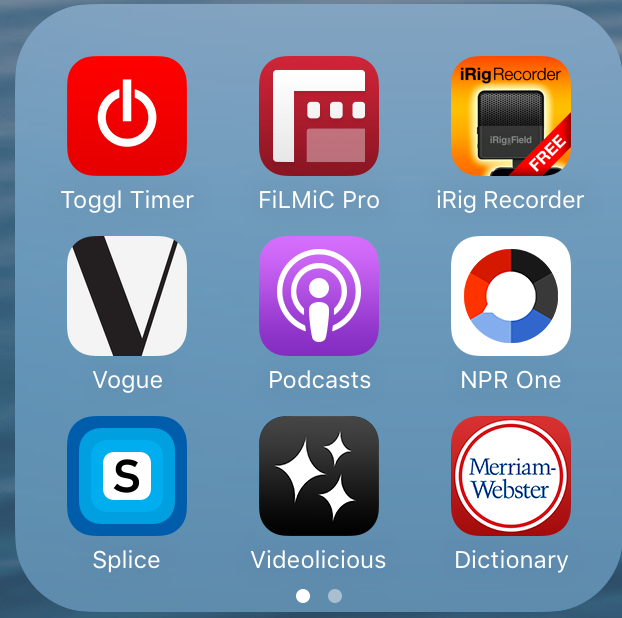Questions to ask before working for free
The media business, meaning journalism, film, radio, television and the like, thrives off of free work. Don’t believe me? Look around. From unpaid interns to bloggers to using citizen journalists’ photos and videos on social media for free, the media business has used people who provide free photos, stories, audio, videos and so on in their content production, sometimes in exchange for “credit” or “exposure” but other times not.
As a freelancer, I think of my bottom line as though I am a publisher. If I can’t monetize the journalism I produce, I can’t pay for my office (i.e. my apartment/home office), my supplies, or anything else needed to report and write quality stories. Therefore, I’m adamantly opposed to working for free, because—like everyone else, particularly the same people who ask people to work for free—I need money to support myself.
I typically encountered that question as a student while seeking internships to beef up my skills, experience, and resume. Even then, I turned down a couple of unpaid internships, because—perhaps even more so back then—I couldn’t afford to work for free. A child of a single mom and non-wealthy family, my student loan debt was my responsibility, though my family helps me a great deal whenever I need them. If it weren’t for the paid internships I had during and after college, I wouldn’t have been able to survive—period. As a black woman from a non-wealthy background, I inevitably see the world through a different lens, which led to stories like this one or this one.
I started about thinking about all of this again after witnessing a Twitter debate sparked by ESPN sports business reporter Darren Rovell’s tweets outlining the benefits of working for free, and Sports Illustrated national NFL writer Jonathan Jones’ articulate rebuttal.
The Chicago Sun Times has a wire story on Northwestern basketball for a home game? Here's an idea: Ask a student. They'll write for free.
— Darren Rovell (@darrenrovell) January 27, 2017
Giving something away for free, working for free at some point as you try to make it in the industry, is some of the strongest advice I got.
— Darren Rovell (@darrenrovell) January 27, 2017
Fastest way to a job today is to provide a team, a player, an agency, great work unsolicited and for free. Great way to be noticed.
— Darren Rovell (@darrenrovell) January 27, 2017
@stephenjnesbitt most kids that don't work for free at some point get nowhere.
— Darren Rovell (@darrenrovell) January 27, 2017
This is some unfathomably bad advice to young journalists pic.twitter.com/wtgru6KFAY
— Jonathan Jones (@jjones9) January 27, 2017
I worked for free once to pad my resume. Was told later I could have easily got paid. Swore to never do it again
— Jonathan Jones (@jjones9) January 27, 2017
The idea promulgated by man with 1.6M followers that you must work for free is easily adopted by employers who can actually pay for work
— Jonathan Jones (@jjones9) January 27, 2017
Longer you work for free, tougher it'll be to ask for money and easier it'll be for employer to not give you money. Just awful advice
— Jonathan Jones (@jjones9) January 27, 2017
I can’t tell you whether to work for free, but I can tell you that your time and your skills have value. And when one outlet or client won’t pay, another will. If someone approaches you for free work, here are the things you need to consider:
Can you actually afford it? The ability to pay for something and the ability to afford it are two different concepts. Paying for something simply means you have the funds to cover an expense, but affording something is being able to cover an expense without screwing up the rest of your finances. Those from middle or lower income backgrounds or young people just starting out usually can’t afford to work for free. Taking on another job to stay can be done...or you can get paid for your freelance work or internship so that you won’t have to work two other jobs to keep your finances intact and food in your stomach. This may seem like a selfish consideration but consider this. If people of different sexual orientations, races or socioeconomic backgrounds can’t afford to be reporters, how are we supposed to diversify the overwhelmingly homogenized newsrooms that chronicle (or don’t bother to cover) the issues that matter to our diverse readership? As Poynter points out, if you want a more diverse newsroom, pay your interns.
Is the college credit or clip enough? Many colleges charge tuition fees in order to accept college credit earned through unpaid internships. So on top of not earning money for your day-to-day expenses (transportation, food, rent), you could get stuck with a hefty tuition bill for your experience. Unlike interns who can access equipment through the outlet they’re reporting for, freelancers need to supply their own equipment, transportation expenses, and supplies (computers, cameras, up-to-date mobile phones, printers, paper, etc.) How are you going to pay for that if the outlet isn’t willing to invest in the piece? If you’re starting out, you need clips. You can get these clips and connections at paying news outlets or at paid internships.
Are there other outlets who are willing to pay for your story? As I’ve mentioned before, you can check sites like Who Pays Writers, Who Pays Interns or The Freelancer database via Contently. See which outlets cover the subject of the story you’d like to pitch and start with the highest paying one first. If you’re just starting out, see if you can get a paid internship. After working on staff at my college newspaper (which paid us about $8.25 an hour), I landed paid internships at NBC Chicago and Crain’s Chicago Business, for which the latter of the two I’ve done some freelance work. Without paid my paid college newspaper clips, I wouldn’t have been able to get the internships. Look and see if there are paid campus jobs that allow you to write. If not, start your own blog if you want to write for free. That way you can earn advertising revenue and have writing samples to show. Build something that you are proud of, and interested editors and readers will follow. Blogging, of course, is not the same as working at a magazine, but it still presents raw clips of your work to show your writing chops. You can make connections and get clips without being exploited.
Are you setting yourself up for low earnings and fewer prospects down the line? A 2014 National Association of Colleges and Employers survey found that students who took a paid internship offer were more likely to receive a job offer than students who took unpaid internships, and paid interns went on to earn more than unpaid interns. Of course, an internship is better than no internship at all, right? Kinda. Students with unpaid internships had a higher percentage of job offers (39.5 percent) than did students with no internship experience at all (38.6 percent), but the difference was marginal, the survey found. These stats span across industries, so take them with a grain of salt. But the point I’m making is clear. Start thinking about how much your time and skills are worth as early as possible. As a freelancer, it is critical to be able to negotiate your rates. Look for paid internships and higher paying freelance commissions at the aforementioned sites, so that you can keep the lights on.
Is the editor’s budget truly limited? As a former editor, I’ve been part of conversations involving freelance commissions. It is true that many outlets are working with limited budgets. But sometimes, editors are able to pay more if you ask for more or if you develop the relationship with a publication over time. For some time, I’ve been confused about why certain mainstream media conglomerates refuse to pay interns or contributors in exchange for their work. Yes, the contributor gets exposure on a high-traffic site, but you can get exposure and pay at other, well-paying news outlets. Ask for a bit more money per story and explain the costs involved (transportation, photo editing, transcriptions etc.) Even if you are denied a pay increase or pay at all, the beauty of freelancing is being able to take your work wherever you like. Politely push back a bit, and see what happens. More often than not, a no doesn’t necessarily mean “no forever”; it means “no for now, but maybe later.” When in doubt, ask. Always, always, always ask.
Clearly working for free helps get some people in the door at their most desired workplaces. And that’s great for them! You have to do what you have to do create the life you want. But it should be considered, particularly for newsrooms that lack women, people of color or employees who come from low-income backgrounds, the more you pay for good work, the more doors your opening for people like me who’ve been shut out in the past. Plus, as the saying goes, “You get what you pay for.” That’s not to say that the people who are willing to work for free are terrible, but the people producing outstanding, high-end work are almost always unwilling to work for no pay at all. Aspiring journalists and freelancers looking for “exposure,” think of the true costs of working for free.
How do you feel about working for free? Leave a comment or email me at contact@thefreelancebeat.com.





